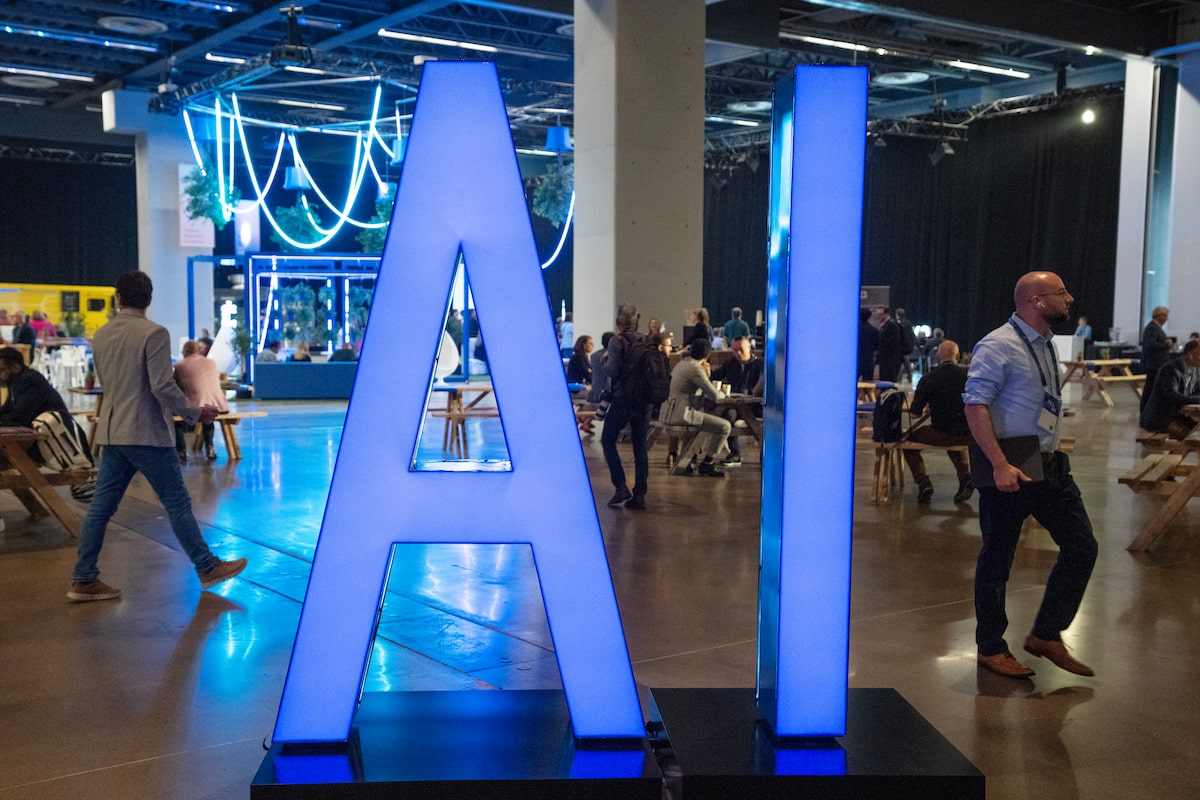The All In artificial intelligence conference in Montreal, in September, 2023. Investing in early-stage talent must be the cornerstone of Canada’s AI strategy.Ryan Remiorz/The Canadian Press
Liam Gill leads the capital program at the MaRS Discovery District.
Evan Solomon, Minister of Artificial Intelligence and Digital Innovation, has spoken at length about how the adoption and proliferation of AI has created an opportunity comparable to the dawn of the internet in the 1990s.
Canada missed out on that technological revolution. Currently, seven of the top 10 companies in the United States are technology companies, with a combined worth of US$28.3-trillion. In Canada, only one of our top 10 companies is a technology company, and it is worth US$0.2-trillion.
The federal government appears determined to avoid repeating the mistakes of the past. But Canada’s new AI strategy task force, launched last month, may already have a blind spot. While its focus on research, adoption, commercialization, scaling, education, infrastructure and security is both necessary and commendable, it reflects a playbook built for the internet era — not the AI era.
In the AI economy, value is being created not just by established players, but by individual talent, pre-company, pre-product and pre-revenue. That’s the race Canada risks losing.
As we focus on building systems and strategies similar to those the Americans used to win over the last three decades, U.S. investors are already deploying their newest strategy: investing in top AI talent before they have a company, product or sometimes even before they have an idea.
Opinion: Artificial intelligence: the good, the bad and the ugly environmental costs
On Sept. 25, the accelerator a16z speedrun was in Toronto, convincing Canada’s top innovators to apply to its new program, which will invest US$1-million, along with providing US$5-million in compute and software credits, in exchange for 10 per cent of their startup.
When looking at its selection criteria, a16z speedrun specifically notes, “We focus on very early-stage startups in speedrun and prioritize the backgrounds of the founders over the ideas.” The program requires participants to be in Silicon Valley and even supports them in acquiring visas.
A week earlier, on Sept. 16, Y Combinator, the accelerator program behind Stripe, Airbnb, Instacart, DoorDash and others, was also in Toronto, hosting an event exclusively for Canadian university students in computer science, math and engineering.
They were offering our students grants of US$20,000 and US$90,000 in compute credits to move to San Francisco for the summer of 2026 and work at the Y Combinator offices on an AI project. If Y Combinator likes their project, it could invest US$500,000 for 7 per cent of the new company.
These aren’t just perks. They’re strategic tools designed to win the war for talent. Every Canadian founder who accepts a U.S. offer represents not just a lost company, but lost IP, lost jobs and lost tax revenue. The returns from these startups, if successful, will accrue to Silicon Valley, not to Canada. Not only will another generation of talented Canadian entrepreneurs start their businesses in the U.S., but we will be left without the talent required to effectively implement any AI strategy threatening our digital sovereignty and security.
While our federal government is doing valuable work in building the kind of infrastructure that allowed the Americans to dominate the technology industry during the internet era, we can’t simply try to catch up to where the Americans were; we need to understand where they are going.
Luckily, we can still course correct. By working with Canada’s leading innovation hubs and universities, the federal government can launch a parallel playbook, providing top AI talent with funding, compute credits and workspace here at home.
To succeed in the AI era, investing in early-stage talent can’t be an afterthought. It must be the cornerstone of Canada’s strategy. The Americans have shown us their playbook. If we don’t invest in our talent, it’s clear the Americans will, on one condition: They leave Canada.
